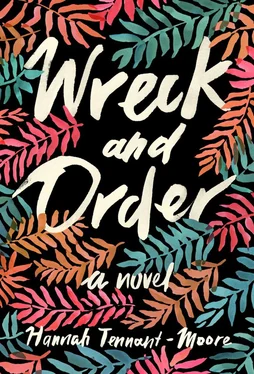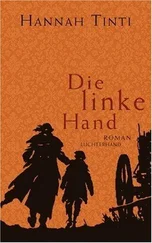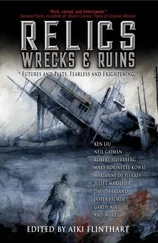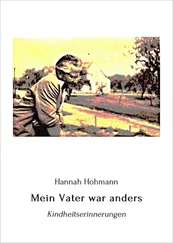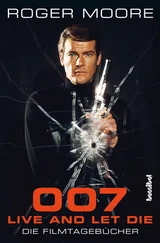“Were you reading this?” he asks.
“No.”
“Good. All lies.”
“Is that a government paper?”
“Indeed. Garbage. You are from the U.S.A.?”
“Yes, I am. How can you tell?”
“My elder brother has lived in Chicago for many years. I recognize the American manner.”
“What is the American manner, exactly?”
“Friendly but cautious. Wary.”
“Your English is better than most Americans’.” I offer a smile that I hope distinguishes my friendliness from that of my wary compatriots.
His family used to be quite cozy with the British, he tells me. He spent most of his childhood on a golf course, in neat little suits and bow ties. His laugh is raucous and long. His uncle served in parliament and his parents were some kind of government administrators. The British loved the Tamils. Divide and conquer! Well, the Sinhalese have certainly put us back in our place. “Nimal.” He holds out his hand.
“Elsie. So what happened to your family after independence?”
They had to leave Colombo after Black July, the month of riots in retaliation for the Tigers’ first big attack, which killed thirteen Sri Lankan soldiers. Colombo raged for weeks afterward, with Sinhalese mobs setting fire to Tamil homes, businesses, and people. A mob nearly killed Nimal. His perfect Sinhalese accent saved his life. “Death to Tamils,” he shouted, until the mob was convinced he was one of them. But his family could not stay in Colombo after Black July. Sinhalese his parents had been close with cut off all ties, afraid of being branded collaborators. Nimal’s best friend bid him farewell after school one day. “I must not look you in the face again in this life,” he said, and turned his back. After the riots, Nimal’s uncle quit parliament. He had stayed even when his party was forced to support the Sinhalese-only language policy, even when they gave up the fight against the law requiring Tamils to get better marks than Sinhalese to enter university. But after the government-supported pogrom, Nimal’s parents and uncle had to accept the gravity of anti-Tamil feeling. Their family name would not protect them from a mob armed with machetes and kerosene. They moved to Vavuniya, Tiger country. Those were the golden years for Prabhakaran, who had prepared himself to lead the Tamil Tigers by torturing insects and sticking pins in his fingernails to inure himself to pain. He demanded every family give one child to the LTTE. Nimal had only one sister. The Tigers loved female fighters — bombs could easily be hidden under the dresses of seemingly expectant mothers — but Nimal would never have sent his sister to war. So Nimal joined the Tigers. When they said jump, you jumped. Anyway, he didn’t mind joining, after what the Sinhalese did to his cousin. Crucified him in the road. Nailed his hands to the pavement. Left him there to be stampeded. Nimal thought Prabhakaran was a lunatic, but this lunatic was the Tamils’ only hope. The Tigers used to put up posters that showed two different Tamil girls: One going to school with pigtails and a neat dress, then ending up dead in the bushes, her skirt pushed up past her waist; Sri Lankan soldiers smirked nearby. The other girl stood tall and proud in camouflage pants, staring down the barrel of a rifle. This was not only propaganda. Nimal’s sister did not join the Tigers and she was raped by the Indians, the supposed peacekeeping force that came to help end the war. India sent the most brutal men they had — from backward tribes, no inkling of civilization — and gave them no direction. Nimal told his sister never to tell anyone that she’d been raped so she would be able to get married later. Which she did, to a carpenter who was forced to build bunkers for the Tigers. They had four kids. The whole family is dead now. Killed during the last months of the war. Rajapaksha knows how to win a war, you have to hand it to the man. Jail the journalists and bomb, bomb, bomb.
Or so goes my fantasy of the story Nimal might tell me, a tidy, personalized illustration of the Sri Lankan horror stories I’ve read about.
What actually happens is that Nimal crumples the newspaper and chucks it out the window, asks me what city I live in, tells me he was in New York once, asks what I think of my country’s first black president. I try to get him to talk about how his family fared during the war, mentioning the Black July riots to let him know I’m informed, but he just laughs more, tells me I know my history, am I sure I’m American?
I turn my face into the breeze from the window, strong enough to justify closing my eyes, Dieu merci. I spend a lot of time reading alone while others are sitting in traffic on their way to a desk, and I tell myself this makes me better than other Americans, with their slavishness to their computers and SUVs and houses with two guest bathrooms. But what do I have? I have a full, active mind that brings me neither peace nor love nor contentment nor purpose. If I were a character in a novel, I would be the quintessential twenty-first-century narrator: characterized by the aimless bustle of the sharp mind, revealed through thoughts about my inner torment rather than events that explain the torment. There was a blog post about this on some literary site one time. I read it in my pajamas after Brian left for work, drinking coffee, eating instant oatmeal. My mental activity both sustains and paralyzes me! Exactly! I finished my oatmeal, sat at the table. The obvious paradox was that there was nothing I could do with the realization. I was not some dynamic character out of, say, Dickens or George Eliot or, um…I grip my fist in front of my mouth, deeply ashamed, even in the theater of my mind peopled only with other thoughts, to be unable to recall a single other nineteenth-century novelist. As if quick recall of canonical writers would lead to inner peace.
But now something is happening that shuts my brain up. We are hurtling through a darkness so complete its texture is the total absence of texture. There is no boundary between self and air. My hand, inches from my eyes, is an indistinguishable part of the mass of black particles careering about me, interrupted here and there by thin wisps of light. Near the end of the tunnel, the white threads spin together. The light becomes shapes. The shapes become objects, disappointing in their familiarity.
Nimal claps his hands on his thighs. He looks past my shoulder at a train station, barren except for a man in a sarong, picking his teeth on a shady bench. “I exit at the next stop,” he says. “Would you like to come with me?”
I cross my arms over my chest and stare at the seat back in front of me. “I am married,” I lie.
“I wish you and your family happiness and good health.” He retrieves his bag from the overhead rack and explodes in laughter by way of goodbye.
So long, stranger.
—
And now we come to the land of infinite plywood shacks with plastic tarps for roofs. The only visible earth is a small rectangle of dirt in the center of every four shacks. In one of these tiny yards a dog lies on its side, unblinking. In others, kids chase one another and shout. The train continues past a mound of garbage several stories high. I block my nose against the stench. Scavengers walk atop the compressed mass of refuse: insects crawling atop a mountain of colored sand. Nearby, barefoot kids play cricket in a field.
A family gets on the packed train and settles in the passageway between cars. The mother and three children immediately fall asleep, draped over one another. The father remains awake, sitting in the open doorway with bent legs to keep his family from falling to the tracks below. As they near their destination, the parents wake the kids with chocolate cookies, which the baby laughingly smears in her sister’s hair until the older girl cries. The father takes the baby while the mother fixes the toddler’s ponytail, murmuring in her ear. A family. The most natural thing in the world, for some.
Читать дальше
